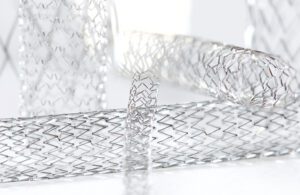
Nitinol is used for a variety of medtech applications. [Photo via Adobe Stock]
The Federal Trade Commission has closed its antitrust investigation into Resonetics’ planned $900 million purchase of the SAES Getters medical nitinol business.
Milan, Italy-based SAES said it and Resonetics “will define the timing to finalize the closing of the transaction” in the coming days and will provide further updates.
The company did not say whether the FTC will allow the sale without conditions, but it doesn’t sound like the agency or the Department of Justice will sue over the transaction. More information was not immediately available.
Nashua, New Hampshire-based Resonetics signed a binding agreement in January 2023 to buy the medical nitinol division from SAES, including U.S. subsidiaries Memry Corp. and SAES Smart Materials. The business supplies medical device manufacturers with raw nitinol as well as components made with the nickel-titanium alloy, which has superelastic and shape memory properties that make it uniquely useful for a variety of medical applications.
In March, the FTC submitted what’s known as a “second request” for more information under the Hart-Scott-Rodino Antitrust Improvements Act. That request extended the waiting period for Resonetics and SAES to close the deal while the FTC and any other relevant agencies looked into the proposed transaction’s effect on competition in the market.
Traditionally, these investigations not only launch discussions with the buyers and sellers of the business, but often also conversations with competitors, customers and other federal agencies. They’re looking for evidence that the deal could be bad for competition, including higher prices, potential layoffs and other labor market effects, or whether fewer players will stifle innovation.
SAES said in a first-half financial update yesterday that it and Resonetics were actively cooperating to provide all requested information and expected to learn of the investigation’s outcome by the end of 2023.
There’s already limited competition in the medical nitinol market, especially among melters like Memry Corp. and SAES Smart Materials. At the same time, medical device developers are increasing demand by finding new and improved ways to use nitinol for minimally invasive procedures, implants and other devices.
SAES Getters reported medical nitinol division sales growth of nearly 11 % in the first half of 2023 compared to the same time last year. It’s the company’s largest division or business, with first-half revenue of €63.35 million (around $68 million). That’s equal to 52 percent of SAES Getters’ total revenue for the first half of the year.
That growth was driven “by the positive trend in the USA of the medical market related to applications dedicated to minimally invasive surgery,” SAES Getters said in a news release announcing the first half financials.
Related: Medical nitinol manufacturing: How this nickel-titanium alloy is made for medical devices